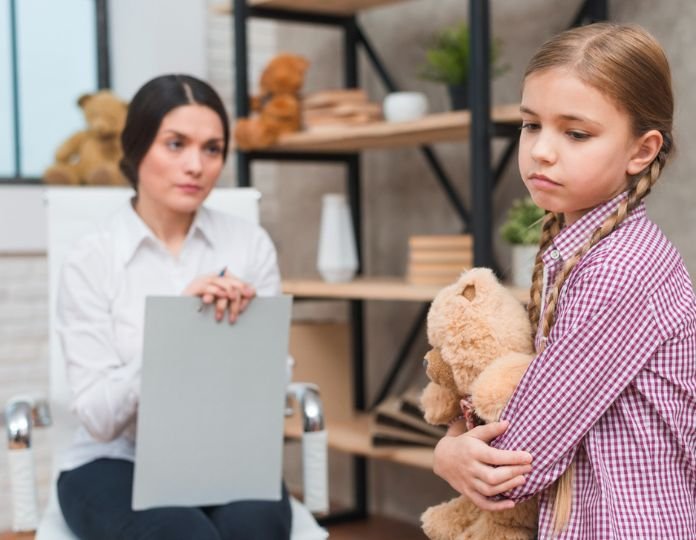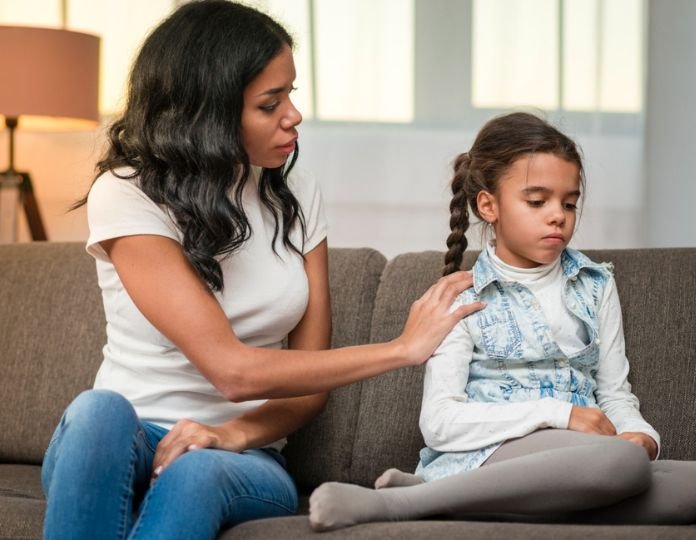Divorce is a major life experience that can significantly alter a child’s world. It affects emotional well-being, behavioural patterns, and social interactions. While shifting family structures and parents dealing with life’s turmoil, children often get caught right in the middle. Thus, due to unique life situations, they also sometimes go through distinct mental health challenges. This essay discusses how divorce affects children’s mental health in various ways. It examines emotional impacts, behavioural problems, and social effects. Additionally, it explores how much these issues can be mitigated.
Emotional Implications
The emotional effects of divorce on children are really deep and complex. Children often develop a range of intense feelings regarding their parents’ separation, including sadness, anger, confusion, and anxiety. Particularly poignant when there are high levels of conflict between the parents.
This is difficult for younger children to understand. They might be deeply troubled by the possibility of family separation and may feel deserted or responsible for the family’s failure. This may breed feelings of insecurity and low self-esteem. Younger children may experience the world in more concrete terms. As a result, adjusting to new living arrangements and changes in parental availability can be difficult for them to manage.
However, older children and adolescents might be more cognitive and emotional. They can resent both or one of their parents and feel betrayed. Another possibility is that adolescents are more likely to internalize the conflict between their parents. This internalization can contribute to conditions such as depression, anxiety, and low self-esteem. The developmental stage characterized by the search for identity and autonomy makes any disruption to a stable family unit particularly challenging.
Research has underlined that children from divorced families run a greater risk of developing emotional problems compared to children from families that are still intact. A study by Amato and Keith (1991) concluded that children of divorced parents had higher levels of depression and anxiety, thus showing that the emotional after-effects of divorce have effects on the mind that may last for years.
Read More: How Childhood Experiences Affect Mental Health
Behavioral Consequences
On the other hand, behavioural changes in children can be one of the manifestations of divorce. Generally, emotional distress produced by divorce results in an increase in parental disorganised conduct of aggression, defiance, or withdrawal as a direct response to the stress and instability engendered by parental separation.
Younger children may continue acting out regressively with the help of bed-wetting or clinging on to their parents due to their inability to adapt to changes. These kinds of behaviours can be quite stressful for the child and the parents and make the adjustment rather complicated.
Behavioural problems manifest much more overtly among older children and adolescents through acting out, substance abuse, or truancy. Such behavioural problems can be indicative of deeper emotional pain that becomes the way to establish some kind of control in what feels like an uncontrollable environment.

Indeed, Kelly and Emery’s research indicates that children of divorce are more likely to behave in ways that put them at risk and may impact their long-term development and well-being. Changes in behaviour can also affect academic performance. Children who experience the stress of divorce may have problems with concentration, motivation, and school performance. A decrease in academic achievement may lead to additional feelings of inadequacy and stress, creating a hard-to-break cycle.
Social Effects
Another relevant aspect is the social consequence of divorce. There are potential changes in the social relations of the children, both with peers and with members of their extended family. The discontinuity in the family may affect changes in the social environment, such as neighbourhood and school changes, which sometimes accentuate feelings of instability and insecurity.
Social isolation is common; one might find great difficulty in keeping friends or being involved in social activities. The stigma associated with divorce tends to make the child feel different or unaccepted by their peers. For instance, children might feel self-conscious explaining to their friends their situation or perhaps could keep themselves away from social interactions simply not to discuss their situation.
Added to that, parental conflict and poor co-parenting influence the child’s development in relational ways. In this respect, children who have grown up in continuous conflicts with their parents are likely to grow up with a distorted view of relationships and difficulties trusting anyone. The aftermath of such exposure can be felt when building up stable and healthy relations is problematic to establish in one’s further life.
Factors Influencing the Impact
Various factors are at play that determine to what extent divorce affects children’s mental health. First, the quality of the divorce itself and further co-parenting count a lot. Good co-parenting-which means clear and effective communication, cooperation, and a child-oriented approach prevents many negative consequences of divorce. Conversely, however, high levels of parental conflict coupled with poor co-parenting exacerbate children’s distress and perpetuate more serious emotional and behavioural problems.

It is also easier if there are supportive relationships, other than the divorce, to provide stability in other areas of the child’s life. Supportive extended family and friends as well as school personnel may offer additional sources of stability and emotional support. Routines and a stable environment help children feel secure and less affected by changes in their family structure.
Individual variables include the child’s age, temperament, and resilience factors that can make a difference in how he or she responds to divorce. The younger children may have a more difficult time understanding and working through changes, while the older children are more cognizant of what is happening yet, nonetheless face considerable emotional challenges. A child’s coping skills and ability to adapt to new circumstances are key to how he or she navigates the changes brought about by divorce.
Read More: Divorce Counseling: How it is important for married couples?
Mitigating the Impact
The approaches to mitigate the negative effects of divorce on children involve multifaceted strategies of support and promotion of resilience. Communication between parents and children is effective in this regard. Parents are advised to talk candidly and openly with the child about the divorce, as appropriate for the child’s age, with reassurance in view. Children should be made to understand that the divorce is not their fault and that both parents do love them and will continue to support them.
The other critical facets are constancy and predictability. Helping children retain as much constancy as possible by attending the same school, and participating in the same extracurricular activities allows them to feel more secure while much else is in flux. Parents should try to provide normalcy and stability, and this will help the child get through this new structure in the family with a lot more ease.
Professional support may be helpful for children who are going through emotional and psychological dynamics related to divorce. Through therapy or counselling, the child may get a chance to vent their feelings and find a way of coping with their emotions. Mental health professionals can similarly advise parents on how they can best support their children in addition to controlling their emotional reactions to the divorce.

We must promote positive relationships between children and their parents, as well as with other supportive individuals. Ongoing relationships with extended family members, friends, and mentors will provide children with additional sources of support and stability. Both parents must remain involved with their child and work together to co-parent, thus minimizing conflict while providing a united front.
Read More: The Impact of Conditional Parental Regard on Children
Divorce is one of the most complicated and painful processes. It may bring considerable changes in children’s mental health. The emotional, behavioural, and social effects of divorce may be deep and long-lasting, influencing children’s lives and development. On the other hand, understanding such influences and trying supportive strategies may mitigate the negative effects and encourage resilience.
These key roles that parents and caregivers must play in the child’s life through the divorce process include open communication, stability, and seeking professional support. In fostering open communication, maintaining stability, and seeking professional support, parents and caregivers can play a critical role in helping children navigate the challenges of divorce and thrive despite the changes in their family life. Indeed, with concerted effort and focus on the well-being of the child, it is possible to support children with divorce and come out stronger through the process.
References +
Bauserman, R. (2002). Child adjustment in joint-custody versus sole-custody arrangements: A meta-analytic review. Journal of Family Psychology, 16(1), 91–102. https://doi.org/10.1037/0893-3200.16.1.91
Amato, P. R., & Keith, B. (1991). Parental divorce and the well-being of children: A meta-analysis. Psychological Bulletin, 110(1), 26–46. https://doi.org/10.1037/0033-2909.110.1.26
D’Onofrio, B., & Emery, R. (2019). Parental divorce or separation and children’s mental health. World Psychiatry, 18(1), 100–101. https://doi.org/10.1002/wps.20590
https://www.psych.uic.edu/research/community-based-children-and-family-mental-health-service s-research-program/in-the-news/the-effects-of-divorce-on-children-how-to-help-them-cope#:~:te xt=Divorce%20may%20have%20many%20effects,unwanted%20health%20outcomes%20in%2 0adulthood.













Leave feedback about this